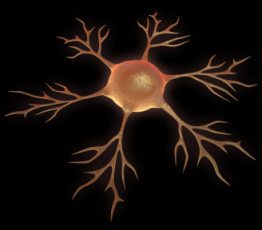Nerve Damage.
Unless the nerve is cut, crushed, or mangled,
You're going to be fine.
There are of course a large number of variables with nerve damage.
In the headline above I said you'll be fine. Here's why.
The term 'nerve damage' is horribly overused in the world of tendonitis related issues.
For example, if you have
Carpal Tunnel Syndrome,
Thoracic Outlet Syndrome (at the neck), or Cubital Tunnel Syndrome (at the elbow), you are likely to get some degree of numbness and/or tingling in you fingers and hand.
When you finally visit a doctor and trust him/her to know what is going on, it is common for your doctor to perform a
Nerve Conduction Test,
also called an 'EMG' Nerve Test.
This test is used to determine whether or not you have nerve 'damage'.
 It is confusing to me how 'damage' is determined from that. As it tests nerve impulse, it only measures the 'flow' that is happening through the nerve.
It is confusing to me how 'damage' is determined from that. As it tests nerve impulse, it only measures the 'flow' that is happening through the nerve.
The education that the medical community receives somehow says that the test determines 'damage'.
There are two things you need to know about 'nerve damage'.
Short Version
1. Just because there is less nerve flow, or less conduction, does not mean that there is damage. There can be damage, of course, but it's not likely that you have any.
2. When you remove the compression on a nerve, flow returns, even if it has been compressed for a long, long time.
Long Version
If your nerve gets compressed, things will begin to work less and less well.
When I say 'things', I really mean everything. It starts with everything connected to that nerve, and spreads from there.
The body works on a balance system. When one thing adjusts, everything else has to adjust to that adjustment. I'll get back to that.
Imagine a garden hose with the water turned on. Imagine yourself stepping on that hose. The flow lessens. Now imagine a car driving over that hose. The water stops for as long as the weight of the car is pressing down on it.
Your nerves work exactly the same way.
When Muscles Get Tight......
Tendonitis
and
Carpal Tunnel Syndrome
are the end results of a
Pain Causing Dynamic.
The Pain Causing Dynamic causes muscles, and thus the connective tissue that wraps -everything-, to get tight.
When you muscles and connective tissue get tight, they compress the affected nerve to some degree.
The real problem here is, when your muscles get tight, they tend to stay tight, so the nerve stays compressed, and as muscles get tighter over time, the nerve gets more and more compressed.
Let's go back to everything adjusting.
When you start hurting due to nerve entrapment and oxygen deprivation to the nerve, everything starts adjusting and compensating.
Muscles tighten up to protect you.
Notice the pattern. Things get tight, the nerve gets compressed, muscles tighten up to protect you, the nerve gets more compressed, etc.
Have you ever woken up in the middle of the night with your arm completely numb and dead weight because you were sleeping on it funny? That's like the car temporarily parked on the garden hose. All the flow gets cut off.
It is important to note that when you roll off your arm, feeling starts coming back, and quickly.
Do You Have Nerve Damage?
My point about sleeping on your arm is that unless your nerve has been severed, or partially severed, or the car has been parked on it for a LONG time, you can always get water flowing through the hose again.
If you don't have a tumor growing into the nerve, if your broken bone didn't cut into it, if some other rare medical occurrence didn't -actually- damage your nerve, it's highly likely that you can make it all better.
It's also safe to say, that if you don't do anything that EFFECTIVELY deals with your Carpal Tunnel or other form of Tendonitis, it's not going to get better.
The body works on UPWARD and DOWNWARD spirals. You're either getting better, or your getting worse.
You can help yourself get better if you have the RIGHT information. You almost certainly won't get better if you do nothing.
I'm not a doctor, I can't tell you if you have actual nerve damage or not.
But it is helpful for you to know that in cases of Carpal Tunnel and Tendonitis, you should make sure that your doctor knows how to tell if you have -actual- nerve damage, or just a hose that's being stepped on.
Return to the top of this
Nerve Damage page.
Go to the main
Tendonitis page.
Go to the
TendonitisExpert.com homepage.
Enjoy this page? Please pay it forward. Here's how...
Would you prefer to share this page with others by linking to it?
- Click on the HTML link code below.
- Copy and paste it, adding a note of your own, into your blog, a Web page, forums, a blog comment,
your Facebook account, or anywhere that someone would find this page valuable.